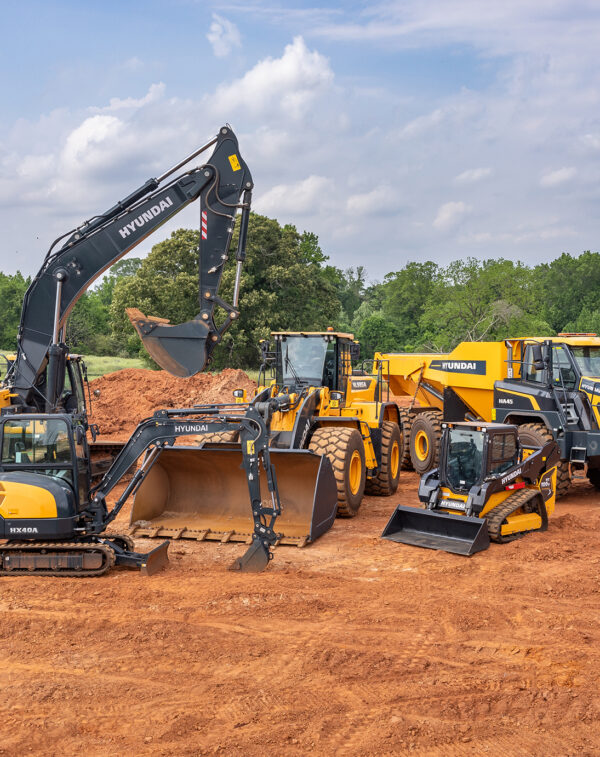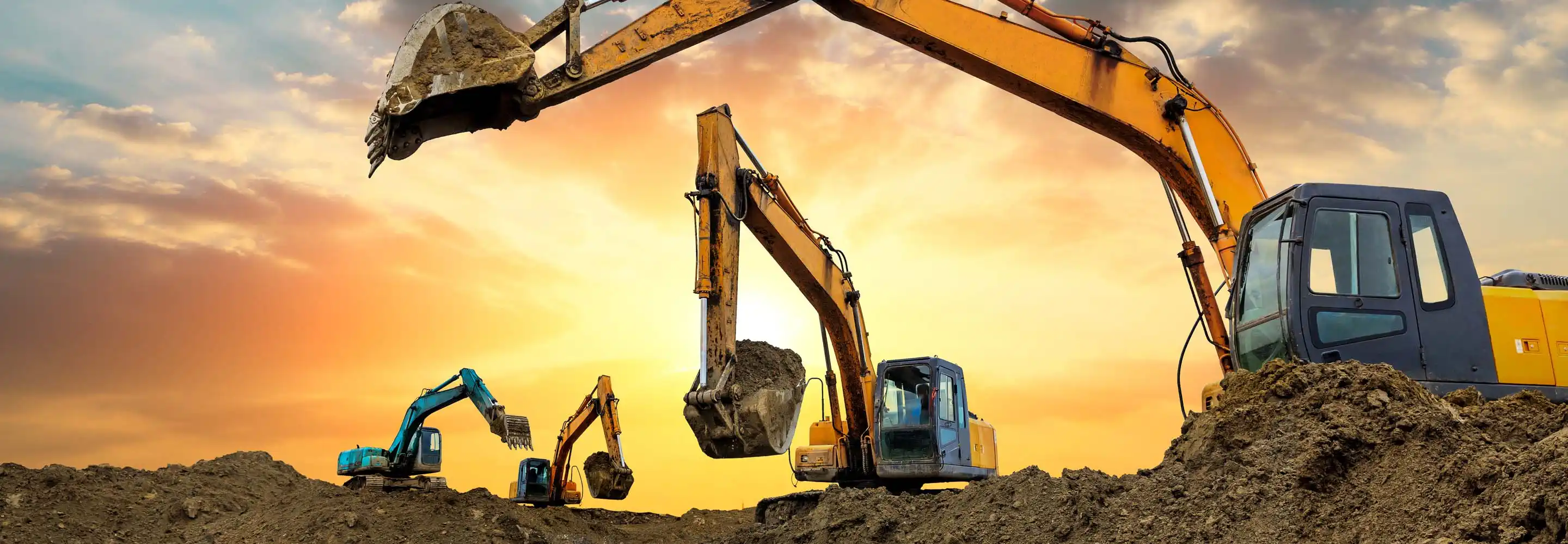Discovering the Financial Benefits of Renting Building Tools Compared to Owning It Long-Term
The choice in between renting and owning construction equipment is pivotal for economic monitoring in the sector. Renting out deals prompt price financial savings and operational versatility, allowing companies to allot sources a lot more successfully. Recognizing these subtleties is necessary, particularly when taking into consideration just how they straighten with certain task needs and economic methods.

Expense Comparison: Renting Vs. Possessing
When reviewing the monetary ramifications of renting versus owning building equipment, a thorough price comparison is important for making informed choices. The option between renting out and possessing can considerably impact a firm's profits, and comprehending the associated prices is critical.
Renting out building equipment commonly includes lower ahead of time prices, enabling organizations to designate funding to various other operational demands. Rental contracts often consist of flexible terms, allowing companies to gain access to progressed machinery without lasting commitments. This versatility can be specifically beneficial for temporary projects or changing work. Nevertheless, rental prices can build up with time, potentially exceeding the expenditure of ownership if devices is required for an extended duration.
On the other hand, having building and construction equipment requires a considerable first investment, together with continuous prices such as depreciation, insurance coverage, and financing. While possession can bring about lasting savings, it likewise locks up resources and may not supply the exact same level of flexibility as leasing. Additionally, having tools demands a commitment to its application, which might not always line up with job demands.
Eventually, the decision to rent or possess ought to be based on an extensive analysis of details task requirements, financial capacity, and lasting calculated goals.

Maintenance Responsibilities and expenses
The selection in between renting out and having building equipment not only involves economic factors to consider however likewise includes continuous maintenance expenditures and duties. Having devices requires a significant dedication to its maintenance, which includes routine inspections, fixings, and prospective upgrades. These obligations can rapidly accumulate, leading to unanticipated expenses that can strain a spending plan.
On the other hand, when leasing equipment, upkeep is usually the responsibility of the rental firm. This plan allows contractors to stay clear of the financial burden linked with deterioration, as well as the logistical difficulties of scheduling repairs. Rental contracts frequently consist of arrangements for maintenance, indicating that professionals can concentrate on finishing projects instead than bothering with equipment problem.
Furthermore, the diverse array of devices readily available for lease allows firms to pick the current designs with advanced innovation, which can boost efficiency and efficiency - scissor lift rental in Tuscaloosa, AL. By choosing leasings, services can avoid the long-lasting obligation of tools depreciation and the connected upkeep headaches. Eventually, examining upkeep expenses and obligations is critical for making an informed decision regarding whether to own or lease building and construction tools, considerably influencing overall task prices and functional effectiveness

Depreciation Effect on Possession

A considerable aspect to take into consideration in the decision to own building equipment is the effect of depreciation on total ownership costs. Depreciation represents the decline in worth of the tools with time, influenced by factors such as usage, deterioration, and improvements in modern technology. As equipment ages, its market price decreases, which can substantially impact the proprietor's economic placement when it comes time to market or trade the tools.
For construction companies, this devaluation can equate to considerable losses if the equipment is not made use of to its maximum capacity or if it lapses. Owners must make up devaluation in their financial estimates, which can cause higher overall expenses compared to renting. Furthermore, the tax effects of devaluation can be complex; while it might supply some tax advantages, these are typically offset by the fact of decreased resale worth.
Eventually, the worry of devaluation emphasizes the value of understanding the lasting financial dedication associated with possessing building equipment. Business have to very carefully evaluate exactly how frequently they will certainly use the devices and the potential monetary impact of devaluation to make an informed choice about ownership versus renting out.
Financial Adaptability of Leasing
Renting out building devices supplies considerable economic versatility, read what he said permitting companies to designate resources much more successfully. This versatility is especially essential in a sector defined by rising and fall job demands and varying workloads. By deciding to rent, services can stay clear of the significant capital outlay required for buying devices, maintaining cash money flow for other operational needs.
Additionally, leasing devices allows business to customize their devices options to certain task needs without the long-term commitment related to possession. This implies that companies can easily scale their devices supply up or down based on anticipated and existing task needs. Consequently, this adaptability lowers the threat of over-investment in equipment that might become underutilized or outdated gradually.
One more economic benefit of renting out is the potential for tax benefits. Rental payments are frequently thought about operating budget, enabling prompt tax obligation deductions, unlike depreciation on owned and operated devices, which is spread over several years. scissor lift rental in Tuscaloosa, AL. This prompt cost recognition can better boost a company's money position
Long-Term Task Considerations
When evaluating the long-lasting demands of a construction service, the choice between owning and leasing image source tools becomes much more complicated. For tasks with extended timelines, purchasing tools may seem useful due to the capacity for reduced overall expenses.
Additionally, technological innovations pose a substantial factor to consider. The construction industry is evolving rapidly, with new equipment offering enhanced efficiency and security features. Renting allows companies to access the current innovation without committing to the high upfront costs associated with purchasing. This flexibility is particularly beneficial for companies that manage diverse jobs calling for various kinds of equipment.
Furthermore, economic stability plays an essential function. Owning tools commonly involves substantial capital expense and devaluation issues, while renting permits more predictable budgeting and cash circulation. Ultimately, the selection between possessing and renting needs to be lined up with the critical goals of the construction organization, considering both anticipated and current project demands.
Verdict
Finally, renting out building tools provides significant financial benefits over long-term ownership. The reduced ahead of time costs, elimination of upkeep responsibilities, and evasion of devaluation contribute to improved cash money flow and economic flexibility. scissor lift rental in Tuscaloosa, AL. Furthermore, rental settlements function as instant tax deductions, further benefiting specialists. Ultimately, the decision to lease instead of very own aligns with the vibrant nature of building jobs, permitting adaptability and accessibility to the most current devices without the economic problems connected with possession.
As site web equipment ages, its market value lessens, which can substantially impact the owner's monetary setting when it comes time to trade the devices or offer.
Leasing building tools provides substantial monetary versatility, allowing business to assign sources a lot more effectively.Furthermore, renting tools makes it possible for business to customize their devices choices to details project needs without the long-term commitment linked with possession.In final thought, leasing construction tools uses significant financial advantages over long-lasting ownership. Inevitably, the choice to rent rather than own aligns with the vibrant nature of building jobs, enabling for versatility and accessibility to the most recent devices without the financial problems linked with possession.
 Jonathan Lipnicki Then & Now!
Jonathan Lipnicki Then & Now! Loni Anderson Then & Now!
Loni Anderson Then & Now! Marcus Jordan Then & Now!
Marcus Jordan Then & Now! Shannon Elizabeth Then & Now!
Shannon Elizabeth Then & Now! Megyn Kelly Then & Now!
Megyn Kelly Then & Now!